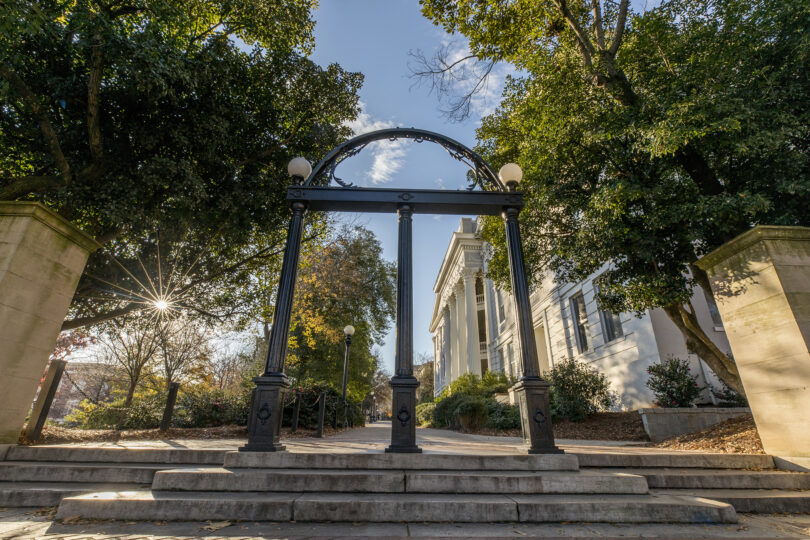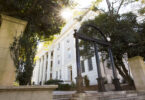Every day on the University of Georgia campus, students, faculty, staff, and even visitors freely express opinions and viewpoints on a variety of issues. In the 2023-24 academic year alone, the University of Georgia has facilitated thousands of expressive activities, including 265 events registered with our Division of Student Affairs, all in accordance with our Freedom of Expression policy. These expressive activities take many forms—marches, protests, vigils, speeches, lectures, petitions, and distribution of literature.
Five protests have been held this week, with several more registered for the coming days. Out of all the expressive activities this year, only one has resulted in arrests: Monday morning, when well-organized protesters planned an event in willful violation of University policy, formed a clearly prohibited encampment on our historic North Campus Quad, and refused repeated warnings to either comply with policies or disperse.
Members of this group have held numerous registered events on our campus this academic year and were very familiar with applicable policies. Just last week, they had spoken by phone with the Associate Dean of Students, who specifically reminded them of applicable policies and the need for a reservation for any events.
Well aware of these policies, but without making a reservation, approximately 25 protesters moved in around 6:30 a.m. Monday to set up tents and camping supplies, as well as wooden shields. They erected a barricade that blocked sidewalks and building entrances and affixed signs to campus structures. The protesters began using amplified sound in close proximity to academic buildings. These activities, including creation of an encampment, clearly violated multiple provisions of the University’s Freedom of Expression Policy, which has not permitted encampments on campus since the early 1990s. And the protesters knew it.
UGA’s Dean of Students and Associate Dean of Students repeatedly advised the protesters that they must comply with UGA’s policy. The group was offered two choices: they could remove their tents and camping supplies, belatedly complete a required reservation form, and continue their expressive activity for the rest of the day; or if they did not want to complete a reservation form, they could remove their tents and camping supplies and relocate to the Memorial Plaza, a centrally located designated forum where members of the campus community are allowed to engage in expressive activity without a reservation. The protesters refused to comply with either option, instead hurling vile epithets at the Dean of Students and Associate Dean.
UGA Police also gave multiple warnings to the protesters beginning at 7:00 a.m. At 8:25 a.m.—after the protesters had defied multiple warnings from the Dean and Associate Dean—the Police Chief issued a final warning, stating: “The University has informed you that this event is in violation of University policy and cannot continue. You are ordered to disperse. Anyone who does not do so will be arrested for criminal trespass and may be subject to additional consequences including student disciplinary action.”
Rather than comply, the protesters locked arms, continued to shout profanities, and chose to be arrested.
Sixteen individuals were arrested—nine of whom were UGA students. The student organization that organized the unauthorized event, Students for Justice in Palestine, was issued an interim suspension; due to federal privacy laws, we cannot comment on individual student disciplinary matters.
All of this is regrettable. But these individuals planned their event in advance. They refused to make a required reservation. They chose to create an unauthorized encampment, knowing it was prohibited, and violated multiple other policy provisions. And they declined to accept alternatives offered by the University to conduct their protest in accordance with University policy.
Make no mistake: These individuals chose to be arrested, and they chose to resist arrest. They are all adults, and they consciously made these unfortunate decisions.
But actions have consequences.
We commend the dedicated members of our Student Affairs Division and the University Police, who patiently and tirelessly facilitate freedom of expression events on our campus. At the University of Georgia, we have chosen a path that affirms our unwavering commitment to free expression but recognizes that such activities must comply with applicable laws and policies.
Jere W. Morehead, President
S. Jack Hu, Senior Vice President for Academic Affairs and Provost
Michelle G. Cook, Vice President for Student Affairs
P. Daniel Silk, Associate Vice President for Public Safety







